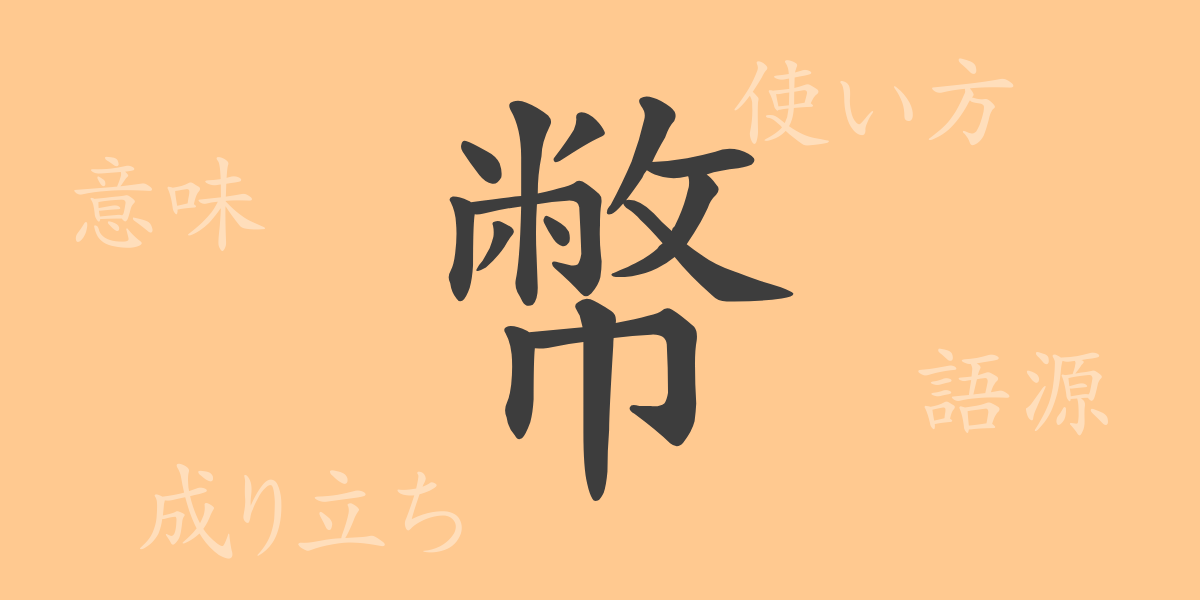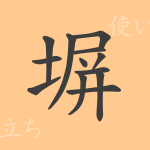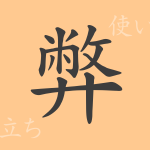In Japanese culture and language, there are numerous kanji (characters) that hold deep historical significance and meaning. One such character is “幣” (hei), which is used in various contexts rooted in Japanese life and beliefs. This article delves into the origin, meaning, usage, and related idioms and proverbs of the kanji “幣” (hei).
Origin of 幣 (hei)
The origin of the kanji “幣” (hei) dates back to ancient China. It originally meant a cloth used to wrap precious or sacred items, derived from the silk cloth called 帛 (haku). Over time, it came to refer to offerings to the gods or valuable items in general.
Meaning and Usage of 幣 (hei)
In modern Japanese, “幣” (hei) is primarily used in two contexts. One is in Shinto, where it refers to offerings to the gods or sacred items. The other is to denote currency or money. Additionally, “幣” (hei) can be used to refer to gifts given to others with respect.
Reading, Stroke Count, and Radical of 幣 (hei)
Understanding the reading and structure of the kanji “幣” (hei) can provide deeper insight.
- Reading: On’yomi (音読み) “ヘイ” (hei), there is no Kun’yomi (訓読み).
- Stroke Count: 15 strokes
- Radical: 巾 (haba, kinben)
Idioms, Proverbs, and Expressions Using 幣 (hei)
Idioms, proverbs, and expressions containing “幣” (hei) enrich the Japanese language. Here are a few examples:
- 神幣 (shinpei): Paper or cloth offered to the gods at a shrine, emphasizing its sacred nature.
- 幣帛 (heihaku): Precious cloth or clothing, or a metaphor for money or wealth.
- 幣串 (heigushi): A stick with paper streamers (shide) used in Shinto rituals, offered to the gods.
- 幣舞 (heibu): A sacred dance performed before the gods.
Summary of 幣 (hei)
The kanji “幣” (hei) is deeply connected to ancient beliefs and daily life. Even in modern times, it plays a significant role in Shinto and economic contexts, remaining an important part of Japanese life. Understanding idioms and expressions containing “幣” (hei) allows one to appreciate the richness and depth of the Japanese language and culture.

























